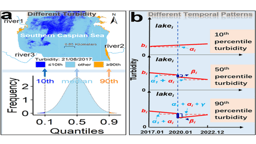Join the Editorial Board of BMC Public Health
Published in General & Internal Medicine and Public Health

BMC Public Health is an open-access, peer-reviewed journal that considers articles on the epidemiology of disease and the understanding of all aspects of public health. The journal has a special focus on the social determinants of health, the environmental, behavioral, and occupational correlates of health and disease, and the impact of health policies, practices and interventions on the community. The journal does not make editorial decisions on the basis of the anticipated interest in a study, but instead on whether studies are scientifically robust, regardless of their perceived impact.
The journal is one of the leading open-access publishers of public health research, publishing research across a wide range of subject and specialty areas, covering all aspects of public health science.
Why become an Editorial Board Member?
By serving on the Editorial Board, you can gain an insight into the other side of the science publishing process, participate in helping researchers to improve their manuscripts prior to publication, and stay abreast of the latest trends and areas of focus in international public health research. Editors will join a board of over 1,000 existing Board Members, and participate in a community of active and interested researchers from around the world.
Who can apply to join?
Requirements for applicants include:
- Holding a PhD in public health research or equivalent qualification or experience, such as being a specialist in public health medicine, or having an alternative public health qualification (such as a Masters in Public Health) with demonstrable professional experience in a public health role.
- Having at least 15 prior publications related to public health in English in reputable academic, peer-reviewed journals.
- Being frequently listed as the corresponding author in relevant publications over the last 5 years.
- Have expertise that fits within the need and scope of the journal.
What are the roles and responsibilities of Editorial Board Members?
The Editorial Board Member is primarily responsible for assessing manuscripts for their suitability for peer review, selecting suitable reviewers who meet the journal’s requirements and recommending decisions on the basis of the peer reviewers’ reports and their own assessment, while adhering to the journal’s editorial policies.
An Editorial Board Member for BMC Public Health should be engaged and willing to handle a minimum of twelve (12) manuscripts per year across a range of disciplines within their broader subject area.
Editorial Board Members must abide by our editorial code of conduct, and will receive training and support for fulfilling the role.
Any additional benefits?
Editorial Board Members are eligible for a 20% discount on Article Processing Charges (APC) for submissions to the BMC Series journals.
I still have further questions
Additional information on the roles and responsibilities of board members is available from the:
How do I apply?
Prospective editors can fill in their details in our recruitment form.
Thank you for considering this opportunity to contribute to BMC Public Health. We look forward to welcoming you to our Editorial Board.
Follow the Topic
-
BMC Public Health

An open access, peer-reviewed journal that considers articles on the epidemiology of disease and the understanding of all aspects of public health.
Related Collections
With Collections, you can get published faster and increase your visibility.
Cancer in older adolescents and young adults
BMC Public Health is calling for submissions to our Collection on Cancer in older adolescents and young adults.
Cancer in older adolescents and young adults presents unique epidemiological challenges, with distinct patterns of incidence, risk factors and outcomes compared to other age groups. This Collection aims to enhance our understanding of cancers that affect these populations, such as gastrointestinal, endometrial, colorectal, cervical and breast cancers, some of which are HPV- or obesity-related. We invite research that explores disparities in cancer outcomes and advances evidence-based strategies for prevention, early detection, and management. For the purposes of this collection, we define older adolescents and young adults as being between 15 to 39 years old.
Topics of interest related to cancer in older adolescents and young adults include but are not limited to:
• Recent and longer-term trends in the incidence and mortality of different types of cancer
• Role of infectious, environmental, and lifestyle factors in cancer development
• Impact of obesity at age of diagnosis or prior obesity (such as during childhood) on subsequent cancer risk and outcomes
• Disparities in outcomes by race, ethnicity, and socioeconomic status
• Innovations in cancer prevention, screening, and early detection
• Long-term survivorship and quality of life among cancer survivors
• Policy implications for cancer prevention and control in younger populations
This collection supports and amplifies research related to SDG 3 Good Health & Well-Being.
All manuscripts submitted to this journal, including those submitted to collections and special issues, are assessed in line with our editorial policies and the journal’s peer review process. Reviewers and editors are required to declare competing interests and can be excluded from the peer review process if a competing interest exists.
Publishing Model: Open Access
Deadline: Jun 26, 2026
Endocrine disruption as a public health issue
BMC Public Health invites submissions to our new Collection, Endocrine disruption as a public health issue. Endocrine disruption has emerged as a growing public health challenge, characterized by the interference of certain chemicals with the normal functioning of the endocrine system. Endocrine disrupting chemicals (EDCs) can mimic, block, or alter hormone signaling, leading to a range of adverse health outcomes. Common sources of EDC exposure include everyday products such as plastics, pesticides, and personal care items, all of which can release substances like bisphenols and phthalates into the environment and human body. Understanding the links between exposure to EDCs and eventual health outcomes is vital for assessing their implications for population health.
We welcome submissions that delve into various aspects of endocrine disruption. Key topics of interest include, but are not limited to:
Role of EDCs in metabolic, endocrine and immune-related disorders
Effect of EDCs in consumer products including personal care products
The links between EDC exposure and male and female reproductive health problems
The links between EDC exposure and certain cancers
Insights into the long-term consequences of early-life EDC exposure and transgenerational effects
Methodological advances in assessing the health impacts of EDC mixtures and cumulative exposures
Development and application of statistical approaches to better estimate the health effects of chronic and/or concurrent exposure
Validating models of cumulative exposure with measurement of combinations of EDCs in human tissues
Individual- and policy-level interventions to address health impacts of EDC exposures
The search for substitutes lacking endocrine disrupting properties
All manuscripts submitted to this journal, including those submitted to collections and special issues, are assessed in line with our editorial policies and the journal’s peer review process. Reviewers and editors are required to declare competing interests and can be excluded from the peer review process if a competing interest exists.
Publishing Model: Open Access
Deadline: May 26, 2026





Please sign in or register for FREE
If you are a registered user on Research Communities by Springer Nature, please sign in